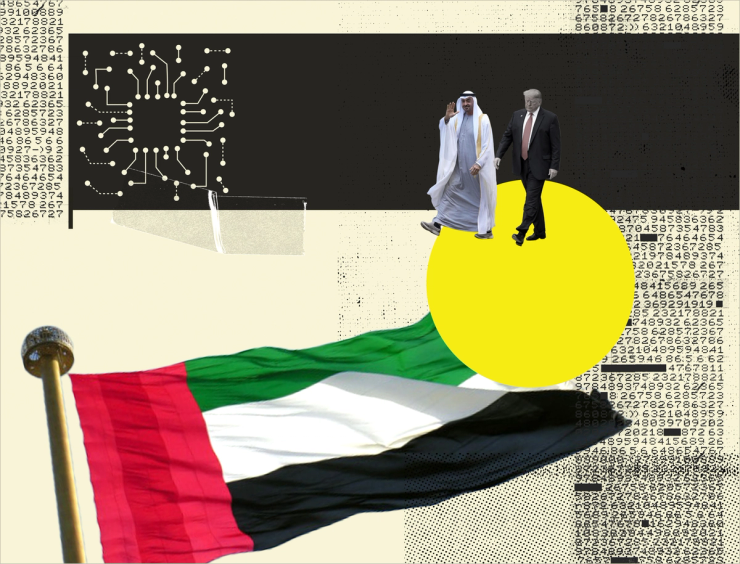No country has embraced the potential of artificial intelligence as fully or intentionally as the UAE, incorporating the technology into its identity as part of a broader effort to create the “algorithmic state.”
The UAE’s approach is rooted in something deeper than innovation. With only 1.5 million citizens, it is challenging for the Emirates to compete directly with most developed states, but it can outmaneuver them. And AI is the solution.
The UAE has been working on an AI policy for eight years.
Abu Dhabi appointed an AI minister and developed a national strategy in 2017. The government and private sector have poured tens of billions of dollars into data centers, AI startups, and large language models. This technology is embedded in everything from government services and lawmaking to public health. The National Genome Project has already sequenced more than half of the citizen population, and AI is being used to personalize care. In education, AI has now become part of the K–12 curriculum.
These days, one of the US’s most powerful geopolitical bargaining chips is access to its advanced microchips. The US is leveraging its lead to show the world that countries aligned with Washington’s thinking can benefit from this technology.
In a region rife with security challenges, the fact that technology is at the forefront of US President Donald Trump’s agenda during his visit to Abu Dhabi signals the UAE’s priorities and ambitions. The US is expected to change the Biden administration’s chip policy and begin negotiating with trusted partners on a bilateral basis. This move will be welcomed by industry giants like Nvidia, which have advocated for greater access to the UAE. Concessions are likely to be made to firms such as Abu Dhabi’s MGX, which is investing in US AI infrastructure.
In addition to improving its native capabilities, the UAE is looking to deepen its partnership with the US, where it has committed to $1.4 trillion in investments over the next decade. Abu Dhabi is already collaborating with US tech companies, including Microsoft, Amazon, and OpenAI, all of which are eager to expand in the region.
Artificial intelligence complements the fast-paced and business-forward government in the UAE. The technology can accelerate returns from Abu Dhabi’s existing investments in space, nuclear, financial services, and blockchain.
Like all bets, committing to AI involves considerable uncertainty and risk. However, states cannot afford to be cautious. Access to hardware alone is not the challenge — states must keep up in a rapidly developing sector.
AI is exponential: the more you have, the faster you can develop. Once states reach a critical threshold where AI assists in designing better AI, those that lead in the race will be nearly impossible to catch. The UAE understands this. If a future arrives where AI fuels geopolitical power, small states that adopt it early may find themselves punching far above their weight.
The stakes are high.
While most countries view AI as a sector to regulate, fund, or attract talent to, the UAE treats it as infrastructure. In the Emirati model, AI is not just a set of technologies — it serves as a foundational layer underpinning governance, economic development, public services, and geopolitical influence. Just as oil once built the UAE’s physical infrastructure, AI is now being used to prepare the UAE for the next phase of its development.
The UAE is fully committed to artificial intelligence as it transforms into an algorithmic state, marking the first step in Abu Dhabi’s goal of becoming a leading AI superpower.
Tareq Alotaiba has 12 years of experience in economic policy, foreign affairs, and national security with the Abu Dhabi and UAE Federal governments. An Abu Dhabi native, he is currently pursuing a master’s degree in Security Studies at Georgetown University.

